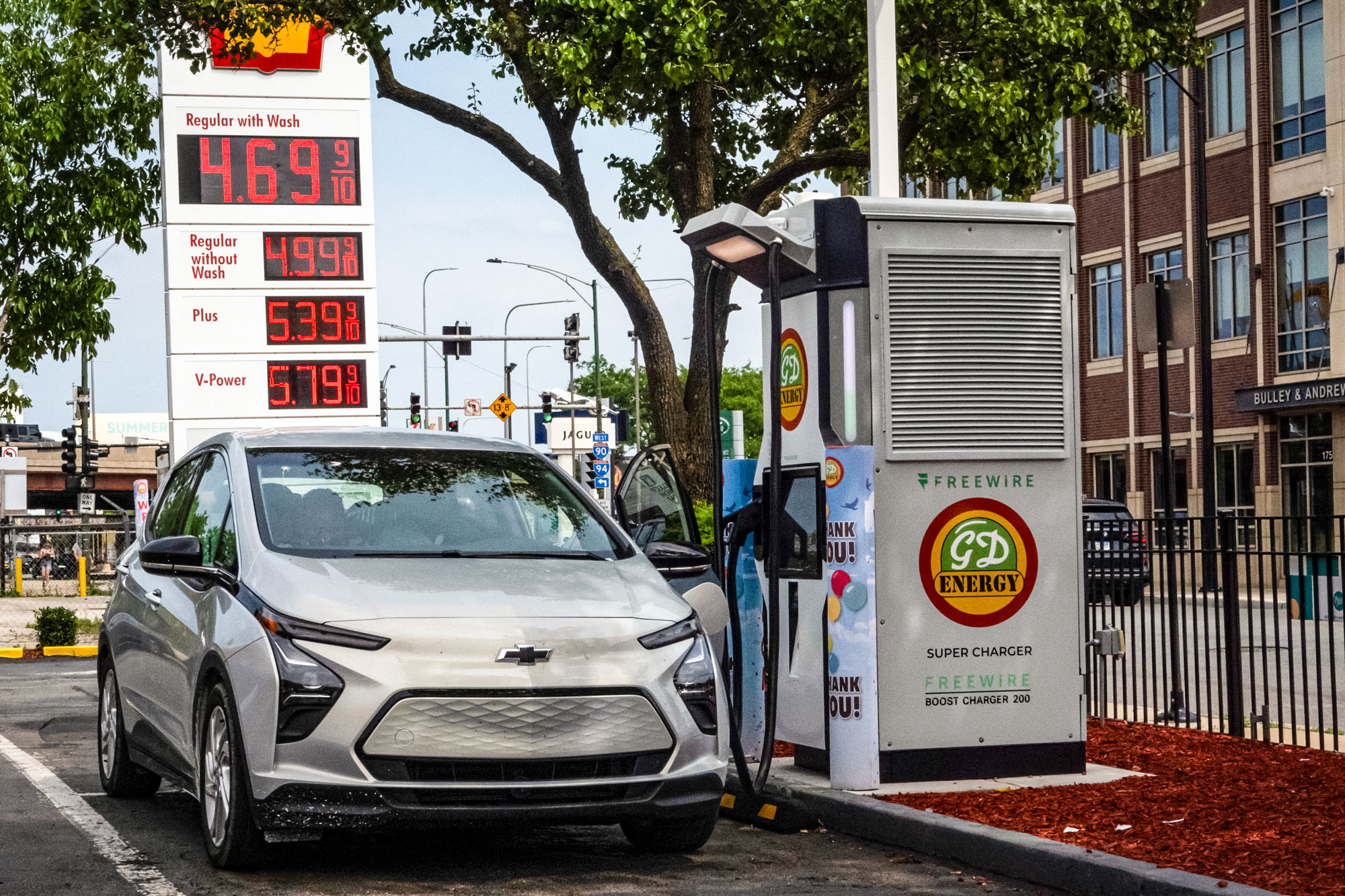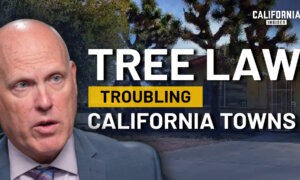President Donald Trump ordered the removal of incentives for electric vehicles and promoted market choice for consumers as part of the executive orders issued on his first day in office.
In the “Unleashing American Energy” order issued on Jan. 20, Trump said that “burdensome and ideologically motivated regulations have impeded” the development of America’s abundant energy resources, “limited the generation of reliable and affordable electricity, reduced job creation, and inflicted high energy costs upon our citizens.”
In conjunction with this initiative, the “electric vehicle (EV) mandate” will be eliminated, and “true consumer choice” will be promoted, along with the removal of regulatory barriers to motor vehicle access, according to the order.
It states that it is the policy of the United States to ensure “a level regulatory playing field for consumer choice in vehicles.”
State emissions waivers that limit sales of gasoline-powered automobiles will be terminated, as appropriate, together with the elimination of “unfair subsidies and other ill-conceived government-imposed market distortions that favor EVs over other technologies and effectively mandate their purchase by individuals, private businesses, and government entities alike by rendering other types of vehicles unaffordable.”
Trump has not yet clarified which regulatory measures he intends to eliminate or rewrite, but the final national pollution standards announced last year by the Biden administration could be among them.
Under the Biden administration’s rule, the Environmental Protection Agency (EPA) said it would work toward cutting 7.2 billion tons of carbon emissions by 2055 by ensuring at least 56 percent of new vehicle sales were electric by 2032.
“With transportation as the largest source of U.S. climate emissions, these strongest-ever pollution standards for cars solidify America’s leadership in building a clean transportation future and creating good-paying American jobs, all while advancing President Biden’s historic climate agenda,” EPA Administrator Michael S. Regan said at the time. “The standards will slash over 7 billion tons of climate pollution, improve air quality in overburdened communities, and give drivers more clean vehicle choices while saving them money.”
On Jan. 10, the Biden administration announced $635 million in grants to continue building the electric vehicle charging infrastructure across the United States with funds from the Bipartisan Infrastructure Law.
Trump said in his executive order under the “Terminating the Green New Deal” section that “all agencies shall immediately pause the disbursement of funds appropriated through the Inflation Reduction Act of 2022 or the Infrastructure Investment and Jobs Act, including but not limited to funds for electric vehicle charging stations made available through the National Electric Vehicle Infrastructure Formula Program and the Charging and Fueling Infrastructure Discretionary Grant Program.”
Incentives to Go Electric
When then-President Joe Biden announced the carbon emissions rule, the president of the Alliance for Automotive Innovation, John Bozzella, said: “The future is electric. Automakers are committed to the EV transition—investing enormous amounts of capital and building cutting edge battery electric vehicles, plug-in hybrids, traditional hybrids and fuel cell vehicles that drive efficiency and convert petroleum miles to electric miles.”
According to the latest numbers from Cox Automotive’s Kelley Blue Book, 1.3 million electric vehicles were sold in the United States last year, a 7.3 percent increase from 2023.
The top 10 EV models were Tesla Model Y and 3, Ford Mustang Mach-E, Hyundai Ioniq5, Tesla Cybertruck, Ford F-150 Lightning, Honda Prologue, Chevrolet Equinox, Cadillac Lyriq, and Rivian R1S.
“Sales of EVs in the U.S. benefitted from strong incentives from the automakers, excellent lease deals, and federal and state incentive programs,” the Jan. 13 report said.

An employee works on an assembly line at startup Rivian Automotive's electric vehicle factory in Normal, Ill., on April 11, 2022. (Kamil Krzaczynski/Reuters)
Government tax credits are currently available for eligible vehicles, including up to $7,500 for new electric vehicles, $4,000 for used vehicles, and up to $1,000 for home chargers.
Trump’s latest order to end incentives could put a dent in car sales numbers and affect future EV deliveries.
Trump’s order said that “agencies shall prioritize cost-effectiveness, American workers and businesses, and the sensible use of taxpayer money, to the greatest extent,” when disbursing federal funds. He added that the “calculation of the ‘social cost of carbon’ is marked by logical deficiencies, a poor basis in empirical science, politicization, and the absence of a foundation in legislation,” and that it renders the nation uncompetitive in the international markets.
In the same executive order, Trump disbanded the American Climate Corps and the Interagency Working Group on the Social Cost of Greenhouse Gases (IWG).
The IWG was started by President Barack Obama in 2009 to establish emissions data standards that can be used across agencies. The American Climate Corps was launched by Biden in 2023 to set up a task force of young citizens to promote climate change causes.
The order also seeks to safeguard individual freedom to choose home appliances such as lightbulbs, dishwashers, washing machines, gas stoves, water heaters, toilets, and shower heads.
The Epoch Times reached out to Tesla, Ford, Rivian, and Chevrolet for comment on the executive order and its potential impact on EV sales but did not receive a response by publication time.















